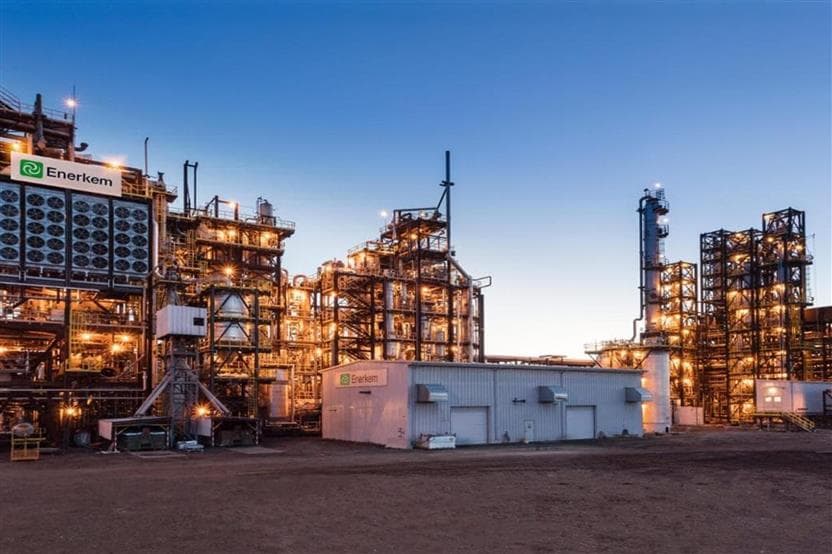While liquid fuels blended with first-generation biofuels comprise the bulk of transportation energy today, electric vehicle infrastructure, advanced generation renewable fuels and hydrogen fuel are all expected to grow.
In 2022, we announced plans to expand low emissions business including a focus on renewable fuels. Our renewable fuels technology development aims to further improve the lifecycle emissions of biofuels by improving feedstock sourcing, processing and transport.
Strategic partnerships
We started producing renewable fuel in the early 2000s at our ethanol plant in St. Clair, Ont. The focus of future investments is to meet increasing renewable fuel mandates and leverage new technologies to provide a leading edge in the growth of renewable fuel demand globally.
Over the past decade, we’ve made strategic investments in promising second-generation biofuel technologies which create ethanol and methanol from waste streams such as municipal waste, industrial flue gases and forestry and agricultural waste biomass.
We have invested in leading biofuels companies and continue to progress a handful of key projects, designed to be readily scalable and replicable. These investments are critical to developing cost-effective ways to meet future blending requirements while keeping us at the forefront of technology and helping to meet our GHG objectives.
Learn more about some of our renewable fuels initiatives:
Low-carbon ethanol
In partnership with Alberta-based forestry organizations, Emissions Reductions Alberta, Alberta Innovates, the Government of Canada and LanzaTech, we are advancing a pilot project to convert woody biomass into renewable ethanol through the gasification of the biomass into syngas and the fermentation of the syngas into ethanol.
Construction of a pilot facility in the Edmonton, Alta., area was completed in early 2022 and testing has begun, focusing on improving economics through increased ethanol yield and reduced capital costs.


.jpg?mw=304&modified=20221012172840&hash=5845CC69DEC9C437DC778743F7C62858)
